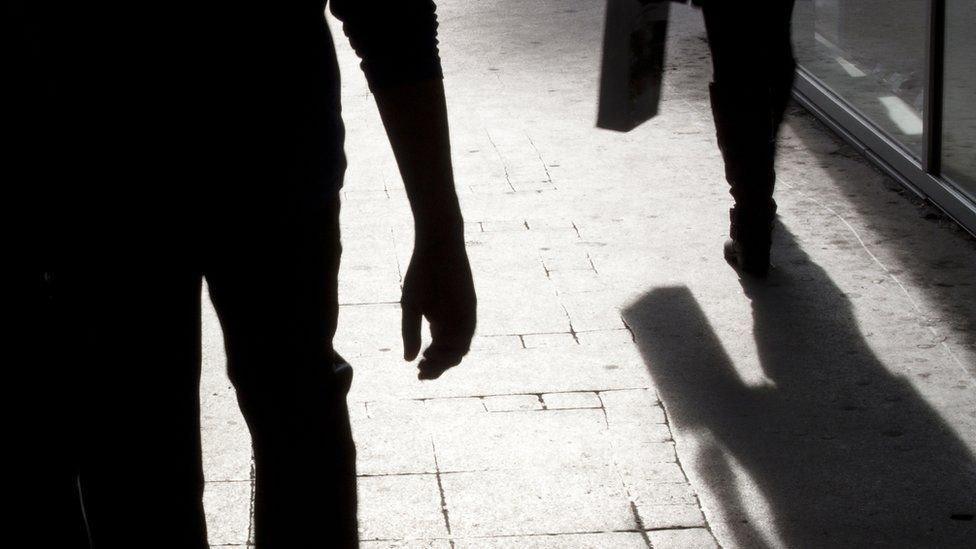We were wrong on abusive partner law, admits Essex Police
- Published
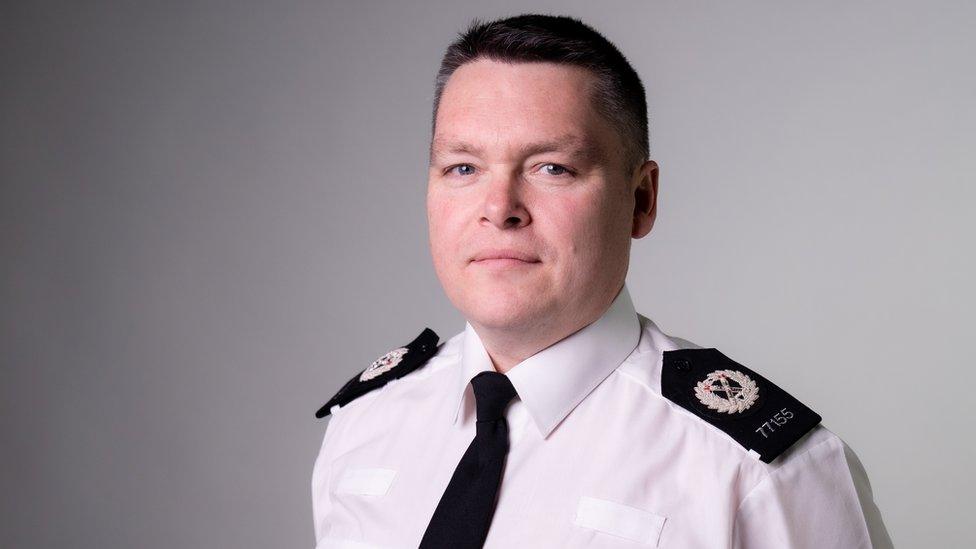
Assistant Chief Constable Andy Mariner says victims of domestic abuse in Essex can now be confident in the force
Essex Police has said its previous interpretation of the Domestic Violence Disclosure Scheme (DVDS), also known as Clare's Law, was too narrow.
Until last year most people who asked for information about their partner's past behaviour were turned down.
The scheme, launched in March 2014, was named after Clare Woods, who was killed by her ex-partner in 2009.
But the force said there had been a "sea change" in handling requests and urged victims to "trust us".
Clare's Law created a "right to ask", so any individual in an "intimate relationship" could find out if their partner had a history of abuse.
It also enshrined a "right to know", which gave police and other agencies a duty to inform someone whose partner had previously committed violence that they might be at risk.
But recent data shows the way the scheme has been interpreted varies widely across all 43 forces in England and Wales.
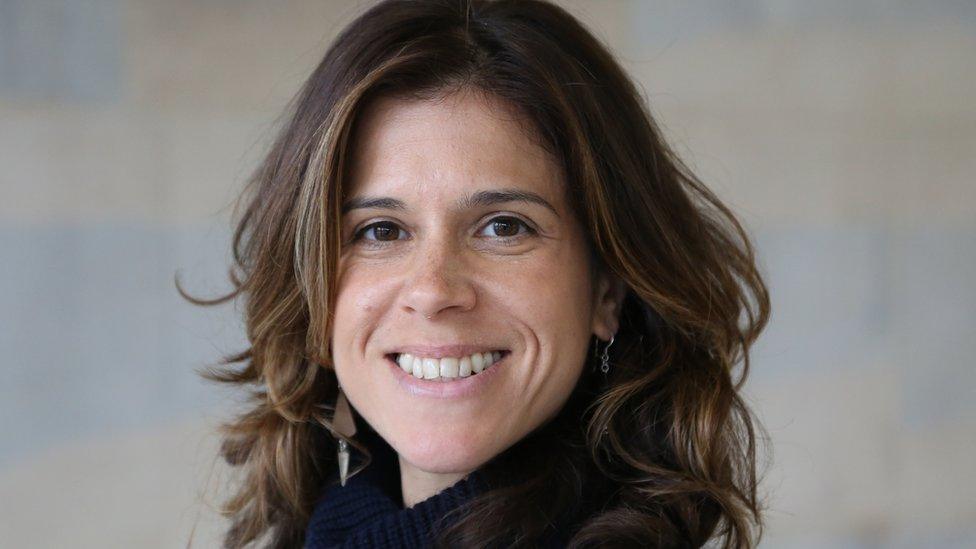
Dr Katerina Hadjimatheou says many police forces have been "excessively strict" with the criteria for Clare's Law applications
Clare's Law data 2017-23
Essex Police disclosed information in 9% of "right to ask" applications
Thirteen per cent of "right to know" applications were granted in the same period
Cambridgeshire, Hertfordshire, Suffolk and Norfolk all had "right to ask" disclosure rate of 30% or more
Northamptonshire, Cambridgeshire and Norfolk forces disclosed information in at least 60% of "right to know" applications
Data shows applications under both "right to ask" and "right to know" have risen year-on-year in every force area

"There is postcode lottery," said Dr Katerina Hadjimatheou, a criminology lecturer at the University of Essex. Dr Hadjimatheou has been researching Clare's Law for the past five years, and sits on a task force that advises the National Police Chiefs' Council.
She said many forces were "excessively strict" about the criteria and incorrectly refused to give information to people after they disclosed that they had ended the relationship with the partner, when in fact the person "could still be at high risk".
Another problem she identified was officers asking applicants if they were aware of a partner's previous convictions, and rejecting the application if they said they were.
"This is a mistake," Dr Hadjimatheou said. She added that her research showed most people who applied "already knew something" about their partner's history, but often this had been "explained away" by offenders who would claim they had "acted in self-defence" or "got into a pub fight".
She said some forces were also concerned about legal action from perpetrators but this was a "red herring", since there had not been one successful case in the past ten years.
Dr Hadjimatheou has been working with Essex Police for the past year and said the force had "completely overhauled" the way it operated the scheme. She added that she was "confident" it would see "improved results going forward".
The force said between 1 August and 31 December 2023 the DVDS team made 264 disclosures, which was 65% of all applications received, and that in the past year it received 4,500 fewer reports of domestic abuse than the previous 12 months.
How Essex Police tackles abuse
Reviewed approach to DVDS in line with new Home Office guidance
Recruited a specialist Domestic Abuse Review Team of more than 20 officers, which focus on disclosures
Domestic Abuse Problem Solving Team dealing with high-risk domestic abuse perpetrators
Rapid Video Response Team who capture evidence from those who report abuse to improve prosecution cases

'Trust and confidence'
Essex Police's Assistant Chief Constable Andy Mariner said that "breaking the cycle of domestic abuse is one of [the force's] top priorities". He added it was an area Essex Police had "invested in heavily".
He acknowledged "there is a possibility" victims had been put at risk because a previous application had been turned down.
While the DVDS team does not intend to do a review of historical requests, he added that if anyone felt they or a family member could be at risk then he would "encourage them to come forward" and have "trust and confidence in Essex Police".
The force was also keen to show it has improved how it "works with partners right across the county", including domestic violence charities.
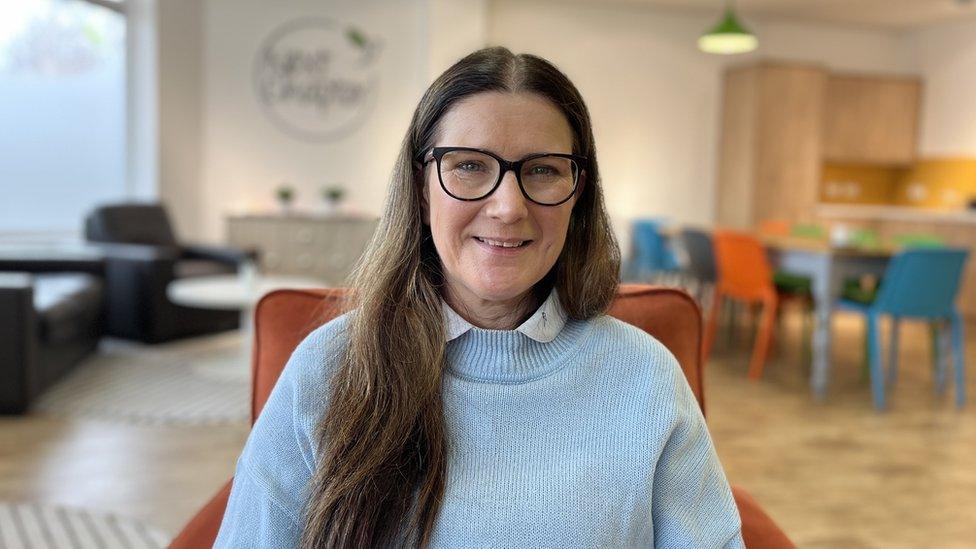
Ruth Cherry, an independent domestic violence adviser for Next Chapter in Colchester says Essex Police has improved its performance
Ruth Cherry, an independent domestic violence adviser from the charity Next Chapter in Colchester, now meets weekly with officers from the disclosure team, and will be present when a disclosure is made to support individuals who may feel like "a bombshell has been dropped".
"You need to be able to talk to somebody, you need to be able to safety plan, you need to know you're not alone," Ms Cherry said.
She feels that although Clare's Law is not perfect, "it is a good thing. It's definitely a positive step."
Anyone in Essex wanting to make an application under Clare's Law can do so via this website, external.
Got a story? Email eastinvestigationsteam@bbc.co.uk, external or WhatsApp 0800 169 1830. Follow East of England news on Facebook, external, Instagram, external and X, external.
Related topics
- Published1 March 2024
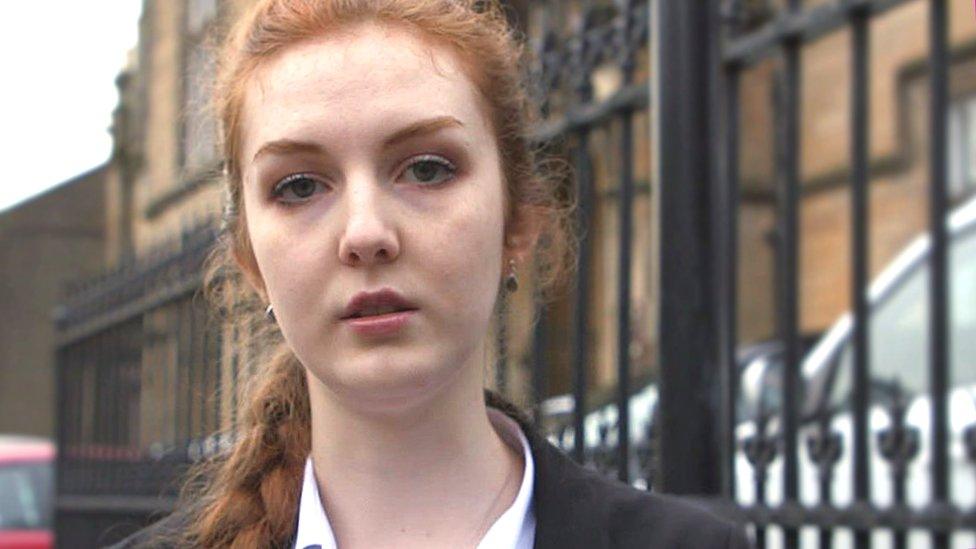
- Published19 October 2023
